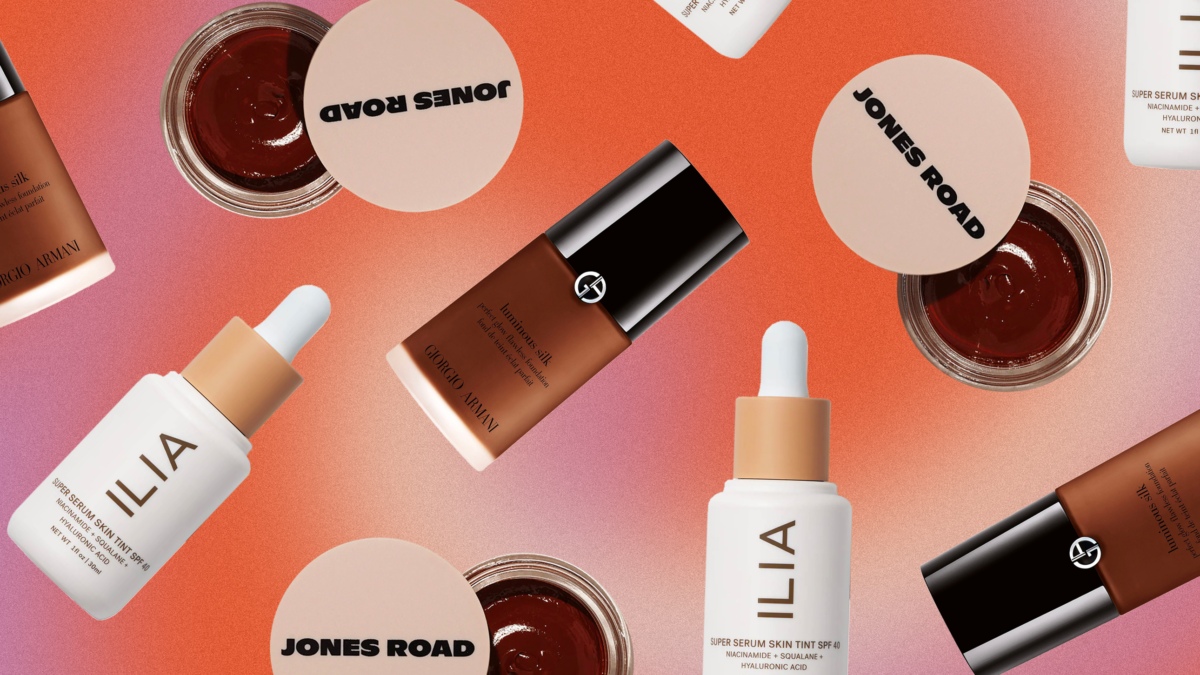
If there’s one thing that’s certain, it’s change—and that applies to your beauty routine, too. The best foundation for mature skin is just as important as a retinol serum or collagen-boosting cream. After all, as the largest organ in our bodies, it shouldn’t come as a surprise that skin evolves over time, meaning our skin care needs and makeup products should adapt accordingly.
“The concerns we have with mature skin are often dark spots, loss of elasticity, fine lines and wrinkles, and dryness,” says celebrity makeup artist Sabrina Bedrani, who counts Michelle Yeoh and Sandra Bullock among her clients. Not only does skin become drier, but time (and sun damage) contributes to collagen loss and pigmentation. Thankfully, the best foundation for aging skin can help address these unique concerns.
Best Foundation for Mature Skin 2023
Which foundation type is best for mature skin?
Shopping for the best foundation for mature skin types? For starters, you’ll want to “find a formula that is not too thick or too dry, as those tend to stay in fine lines and can make you look older,” says Bedrani. (Read “they look cakey.”) Also important is the shade range; knowing how to match your foundation to your skin tone ensures the color blends seamlessly.
Celebrity makeup artist Autumn Moultrie, who works with Viola Davis, emphasizes the need for a formula that’s nourishing as well. “Mature skin needs a lightweight foundation that has reflective qualities and is hydrating,” she says. “Reflective qualities in a foundation deflect wrinkles and add a glow—that, sadly, is lost over time because of a diminished cell turnover rate.”
What do makeup artists use on mature skin?
Instead of a formula with a matte finish—like, say, powder foundation—professional makeup artists say they reach for liquid foundation, which are more likely to have a satiny or dewy finish. “Matte foundations tend to be too dry and emphasize texture by settling into creases,” says makeup artist Robin Black, founder of Beauty Is Boring. “Instead, I prefer to use a glowy, natural-finish foundation.” It makes for a more low-maintenance look—think no-makeup makeup versus one that requires touch-ups. Another good option is foundation sticks, which, depending on the formula, can be creamy and easy to blend.
What’s the best way to apply foundation on mature skin?
As with concealers for mature skin, applying foundation largely comes down to prep. “Allow your moisturizer to absorb into your skin before applying your foundation,” says Black. “Think of your skin care as prepping a canvas, so you want all the products you apply to sink in and leave an even surface to blend the foundation over.” (The same goes for your sunscreen.)
Once you’ve applied and blended the foundation onto skin and towards your neck—no telltale lines here—using a makeup brush, “press lightly with your clean palms,” says Black, who recommends patting a little into your ears as well. “The gentle pressure and warmth from your hands will help the foundation fuse with your skin for a more even, less textured look.” (Once you’re ready to call it a day, scope out our best tips for removing makeup to help keep skin healthy and clean.)
How do I keep my foundation from settling into wrinkles?
Once you have the best foundation for older skin in hand, Black recommends starting with a good makeup primer. “Primer, especially formulas that are designed for more mature skin, can help,” she says, citing those that have lifting or firming properties.
Whether you’re into buildable coverage or love a tinted moisturizer, we’ve got you covered. To help you find the best foundation for mature skin that works for you, we rounded up makeup artists’ top picks, consulted dermatologists, and sprinkled in a few editor faves.













